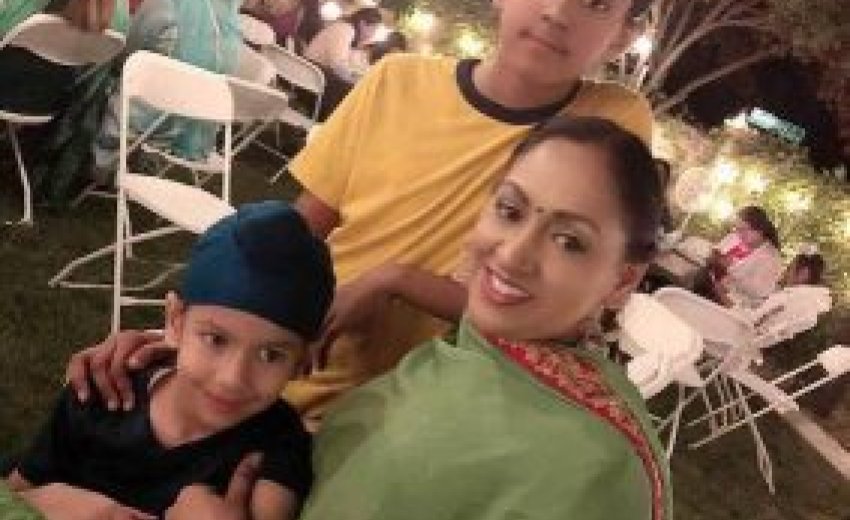When the nine-year-old Sikh boy Anmol said, “Mom, do I look different?”, her mother knew something was wrong.
When Sukhvir Kaur's oldest son, Anmol, a resident of Visalia in California and an immigrant from India, asked, “Mom, do I look different?”, she knew something was wrong. For a while, he refrained from going into further detail. However, later, he told his mother that his classmates had been constantly bullying him, calling him names, and making fun of his patka, a head covering worn by Sikh males.
Discrimination against Sikhs
Anmol, age nine, has been bullied because of how he looks almost since the beginning of kindergarten. However, Sukhvir got worried about her son after hearing about the incidents. More so, because her youngest son, age four, would start going to school soon.
Initially, Sukhvir was shocked at the incidents but then she decided to do something about it. She planned to visit her son’s school and talk to the principal and teachers. Recounting it, she said, “ It was a good decision; at school, they listened to me and they took action. They even encouraged my son to let them know if this happens again.”
However, this was not all. Sukhvir wanted to make sure that her son understood the whole situation. She wanted him not to give in but be proactive if he was bullied, explaining to other kids what the patka is and why he wears it.
What is the patka?
Patka is the small under-turban (made from colourful cloth) worn by Sikh boys, with
their hair knotted on top of their heads. While young followers of Sikhism wear patkas, older adults, whether men or women, wear a turban.
Sikhism is a religion that started at the beginning of the 15th century in a part of India called Punjab, which is near Kashmir and Pakistan. It is a monotheistic religion, and its basic beliefs include faith and meditation, in which the creator represents the divine unity and equality of all people. Sikhism doesn’t accept claims that a particular religion owns the absolute truth.
Across the world, there are more than 25 million Sikhs, and almost a million of them live in America. Like most minorities and immigrants in the United States, Sikhs have been the victims of bullying because of ignorance and racism.
Bullying of Sikhs due to their identity
Primarily, bullying against Sikhs started after the 9/11 attack. Sukhvir also recounts the discriminatory behaviour that his father-in-law had to go through when he moved to America to live with them. She said, “Some people would yell ‘Osama Bin Laden!’ at him while he walked around the neighbourhood because of his long beard and turban.”
Those bullies were referring to Osama Bin Laden (1957-2011), a Saudi Arabian native who is widely regarded as the conceptual organiser of the 11th September 2001 attacks on the Twin Towers in New York. Sukhvir Kaur decided to approach her neighbours and explain her culture and religion to them.
She observed a positive response, and one of the ladies even became her good friend. Sukhvir proudly stated that the more she explained to people about her and her family’s faith, the more they started accepting them.
Creating awareness, the mission continues
Sukhvir knows her children will continue to be bullied. She said resignedly, that Anmol will start middle school shortly, and then to high school, indicating that she expected further battles to be fought to prevent bullying after Anmol entered those levels.
In 2019, Anmol's life changed drastically. He auditioned to be part of a series of PSAs produced by PBS and the National Sikh Campaign "We Are Sikhs", which is taking the initiative to spread awareness about who Sikhs are and what they stand for in terms of social and religious equality. Anmol was accepted and he was part of one of the four PSAs produced. They started airing in September 2019. Anmol’s participation helped him with his self-esteem and a sense of pride in his culture.
Sukhvir shares that they have their church, or a place of worship in Visalia. She said, “There are more than 50 Sikh families in this town, mostly farmers, doctors—40% of doctors in the United States are from India—businesspeople, professionals.”
Through her efforts, she hopes that people will respect Sikhs in Visalia. They will get a better understanding of the Sikh faith, and the significance of the Sikh identity.
Thinking about all that has happened in the past, and continues to happen, Sukhvir said, “ People should understand that we all are different, and we have to respect this. We are not just different because of the colour of our skin, but because of our skills, language, attitude and culture.”
For years, Sikhs outside Punjab and India have witnessed discrimination and bullying solely on the basis of their appearance. Members of the Sikh faith have been questioned time and again for their turban, beard, kirpan, men’s long hair, and even the kada. However, people from the community, like Sukhvir Kaur, have stood strong in the face of adversity. Rather than staying silent or shying away from speaking up, the Sikh community has been creating waves across the globe with their awareness campaigns and sewa initiatives. Now, more and more people have started recognizing the colourful Sikh turbans, and the patkas, as the symbol of Sikhism. It is gradually being accepted and respected worldwide.
